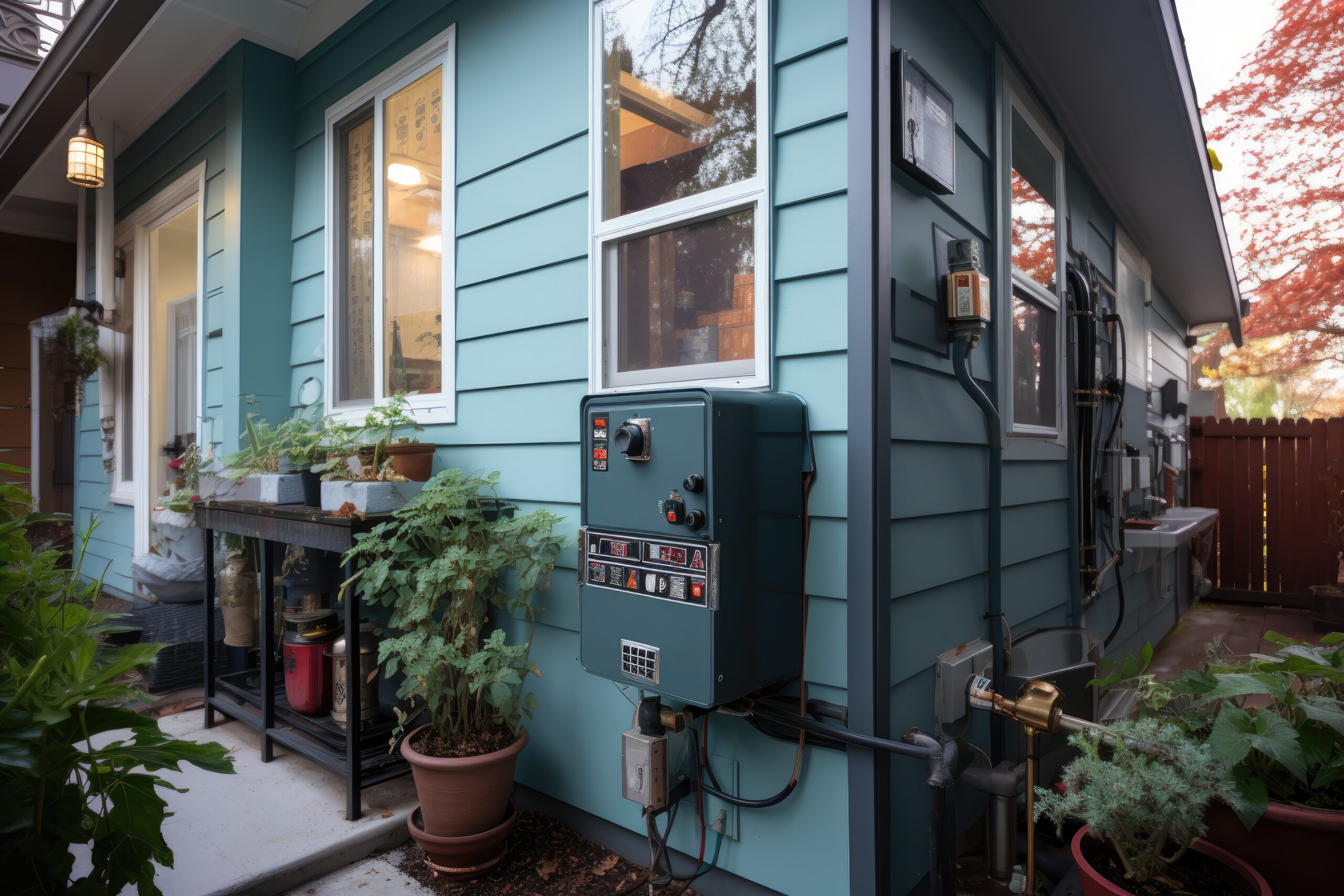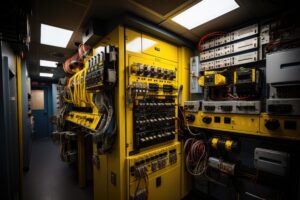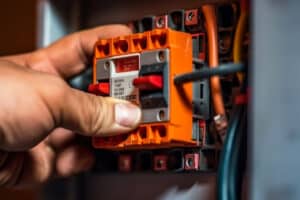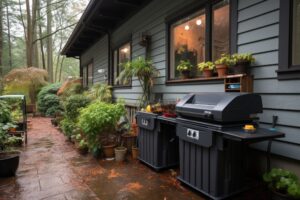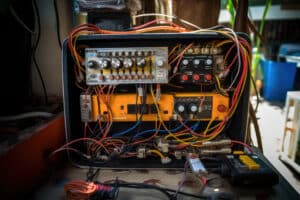Which Generator Type is Best for Home Use?
Key Takeaways
- Portable generators offer convenience and mobility, making them suitable for shorter power outages or outdoor activities.
- Inverter generators provide advanced technology, fuel efficiency, and quieter operation, making them a great choice for sensitive electronic devices and noise reduction.
- Standby generators are the best option for powering home appliances, offering seamless power transfer and long-term reliability.
When it comes to choosing a generator for home use, there are several factors to consider. From power capacity and mobility to noise levels and fuel efficiency, finding the right generator type can make all the difference during power outages or emergencies. In this article, we will explore the pros and cons of different generator types and determine which one is best suited for home use.
Portable Generators: Convenient Backup Power
Portable generators offer a range of benefits for homeowners. They are smaller in size, more affordable, and highly portable, allowing you to easily move them around or take them to different locations. These generators can be connected to a home’s circuit breaker and provide an alternative source of electricity.
One of the main advantages of portable generators is their ability to provide backup power during outages. They can keep essential appliances and devices running when the utility power goes out, ensuring that you have access to electricity for lights, refrigeration, and other critical needs.
Furthermore, portable generators come in various sizes and power capacities, allowing homeowners to choose the right generator that meets their specific needs. Some models even offer remote starting capabilities, eliminating the need to physically be near the generator to start it.
However, portable generators do have their downsides. One major concern is the noise they produce, especially larger models. The noise can be a disturbance to homeowners and their neighbors, making it important to consider noise levels when selecting a portable generator.
Additionally, portable generators often require fuel, such as gasoline or propane, to operate. This means homeowners need to have a sufficient fuel supply on hand to keep the generator running. Regular maintenance, including oil changes and filter replacements, is also necessary to ensure optimal performance and longevity.
Lastly, it’s important to note that portable generators emit exhaust fumes, which can be harmful if used in enclosed spaces without proper ventilation. Safety precautions should be taken to ensure proper ventilation when using a portable generator indoors.
Inverter Generators: Advanced Technology for Home Use
Inverter generators are a newer and more advanced technology compared to traditional generators. They offer several advantages that make them a great choice for home use.
Inverter generators burn less fuel and produce cleaner power, making them more fuel-efficient and environmentally friendly. They adjust their engine speed to match the power demand, providing greater fuel efficiency and less noise. The ability to regulate power output makes them more suitable for sensitive electronic devices, such as laptops and smartphones.
Another benefit of inverter generators is their lightweight and portable design. They are easier to transport and store compared to traditional generators, which are bulkier and heavier. Inverter generators are also quieter, making them a favorable option for homeowners who prioritize noise reduction.
However, it’s important to consider the limitations of inverter generators. They may not be the best choice for high power demands or longer runtime requirements. In such cases, traditional generators might be more suitable due to their larger capacities.
Standby Generators: Powering Home Appliances with Reliability
While portable and inverter generators offer convenience and versatility, standby generators are considered the best option for powering home appliances.
Standby generators are permanently installed outside the home and are connected to the electrical system. They can automatically detect power outages and provide a seamless transition to backup power. These generators are capable of supplying power to the entire home, ensuring that all appliances and systems continue to function normally during an outage.
Unlike portable generators, standby generators do not require manual hook-up or refueling. This makes them an ideal choice for homeowners who prioritize convenience and reliability. Standby generators also eliminate the need for regular maintenance, as they are designed for long-term use and typically come with monitoring systems.
However, it’s important to note that standby generators are more expensive and require professional installation. They are a significant investment but provide peace of mind and uninterrupted power supply during prolonged outages.
Conclusion: Choosing the Right Generator Type
When it comes to selecting the best generator type for home use, it ultimately depends on your specific needs and preferences. Portable generators offer convenience and mobility, making them suitable for shorter power outages or outdoor activities. Inverter generators provide advanced technology, fuel efficiency, and quieter operation, making them a great choice for sensitive electronic devices and noise reduction.
However, if you require a reliable backup power solution for your entire home, a standby generator is the best option. It offers seamless power transfer, eliminates the need for manual intervention, and provides long-term reliability.
Before making a decision, consider factors such as power capacity, noise levels, fuel requirements, maintenance, and the duration of potential power outages. Assess your specific needs and consult with professionals if necessary to determine the most suitable generator type for your home.
Related Websites:
- Should You Get a Home Generator? Here’s the Pros and Cons – Tom’s Guide
- Best Portable Generators for Home Use – Popular Science
- Inverter Generator vs. Generator: Which is Right for You? – EcoFlow Blog
- Inverter Generator vs. Generator: Which One is Right for You? – Generatorist
- The Best Home Generators of 2021 – The Spruce
- Best Home Generators – Forbes
- How to Choose the Right Generator – Popular Mechanics
FAQs:
Q: Which generator type is best for home use?
The best generator type for home use depends on various factors such as power output requirements, fuel type options, portability and size considerations, noise level, and maintenance. It is important to consider individual needs and preferences when choosing a generator.
Q: How does a generator work?
A generator converts mechanical energy into electrical energy. It works by using a fuel source, such as gasoline or diesel, to spin a rotor within a magnetic field. This motion creates an electrical current that can be used to power various devices and appliances.
Q: What factors should I consider when choosing a generator for home use?
When choosing a generator for home use, it is important to consider factors such as power output requirements, fuel type options, portability and size considerations, noise level, and maintenance requirements. These factors will help determine the best generator for your specific needs.
Q: What are the benefits of inverter generators for home use?
Inverter generators are a popular choice for home use due to their benefits. They provide clean and stable power, making them suitable for sensitive electronics. Inverter generators are fuel-efficient, quiet in operation, and often have additional features like parallel capability and eco-mode for increased efficiency.
Q: What are the advantages and disadvantages of portable generators for home use?
Portable generators offer versatility and ease of use. They can be easily moved around and are suitable for various applications. However, they may have limited power output and shorter runtimes compared to other generator types. Additionally, they may produce more noise and require regular refueling.

